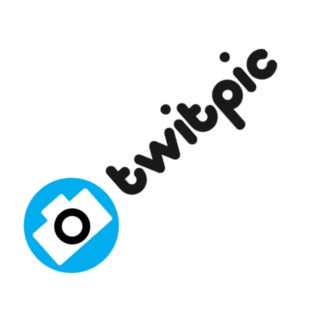
Twitpic is closing. You have three weeks to grab your photos and videos
Image and video sharing service Twitpic is closing its doors. Threatened with loss of access to the Twitter API if the company refused to abandon a trademark application, Twitpic has decided it does not have enough clout to take on the microblogging giant. Twitpic founder Noah Everett used a blog post to break the news and give a little background to help explain the move. He stressed that the closure was a difficult decision and thanked users for their support.
The problem seems to stem from Twitpic's name. Everett explains that the company was contacted by Twitter a few weeks ago and asked to give up on the trademark application. The timing is a little strange because, as Everett points out, Twitpic's name has been in use since 2008, and the trademark application was filed the following year. The company managed to fight opposition from some parties, but it seems as though Twitter dealt the killer blow.

Google’s Android One rollout in India sets off alarm bells at Samsung
Google and Samsung look all set to battle it out for India’s burgeoning smartphone market after three Indian phone producers signed up to the Android One initiative that targets growth at the low end of the emerging market.
Micromax Infomatics, Karbonn Mobile and Spice Group have become the first manufacturers to sign up to Google’s new initiative that wants to drive an improvement in quality that will spark demand for low-end Android handsets.

Getty Images fires lawsuit at Microsoft for "massive" copyright infringement
Getty Images Inc is suing Microsoft for "massive infringement" of copyright. Microsoft's recently released Bing Image Widget enables people to display images on a website based on search terms. The automatically generated code creates image slideshows and galleries that pull in images from Bing -- Getty's complaint centers around the fact that the widget displays unlicensed images from its catalog that are subject to copyright. The Seattle-based stock image company says that Microsoft has turned the images that can be found online into "a vast, unlicensed clip art collection".
The lawsuit, filed at the US District Court for the Southern District of New York, says that the injury caused to Getty is "incalculable" and calls for the widget to be blocked immediately. The level of damages sought is not specified, but Getty's lawsuit suggests that the company has more than 80 million unique images in its library. Getty has its own image embedding tool, and John Lapham, general counsel for the company, explained to Reuters that it is "only available for non-commercial websites and includes photographer attribution".

Google to cough up $19 million in kids' in-app purchases case
Google is to pay out at least $19 million to Android users whose children were tricked into making expensive in-app purchases on smartphones and tablets. The Federal Trade Commission has been investigating mobile purchases for the last three years, and Apple agreed at the beginning of the year to a settlement. Amazon was also investigated and plans to appeal against the charges. In agreeing to repay the money, Google has effectively admitted that apps available in Google Play may be deceptive.
The brunt of the FTC case centers around the idea that it was not made clear to parents that their children would be able to make purchases within apps without authorization. Many of these in-app purchases are to be found in games where players are encouraged into parting with money in return for extra lives, game power-ups, or to unlock new levels. The FTC complained that since 2011 Google had indulged in unfair practices that left parents with bills of hundreds of dollars.

91 percent of Americans concerned about online privacy -- 7 percent would change their name as protection
There are lots of reasons to be concerned about privacy online -- not least the spying carried out by the NSA and other governmental agencies. While some companies are trying to stick up for the rights of their customer, many web users have now taken to censoring themselves. New research by WP Engine shows that the level of paranoia is higher than many people may have thought -- a staggering 91 percent of Americans are concerned about their online privacy. This is interesting in itself, but the steps that web users are willing to take if they feel their privacy is threatened makes for particularly interesting reading.
Of course there are some people who would take things to the extreme, going as far as changing their name in a bid to protect their privacy, but others would take slightly less drastic action. In fact only five percent of those surveyed say they would take no action to protect their privacy. The most common reaction to feeling threatened is to change passwords (79 percent of people), but some would go further, admitting they would consider changing their email address (48 percent) or change their credit cards (48 percent). Well over a third of those surveyed (42 percent) said they would be willing to delete all of their social media accounts. Three percent of people indicated that they would even move house as a result of having their privacy threatened online.
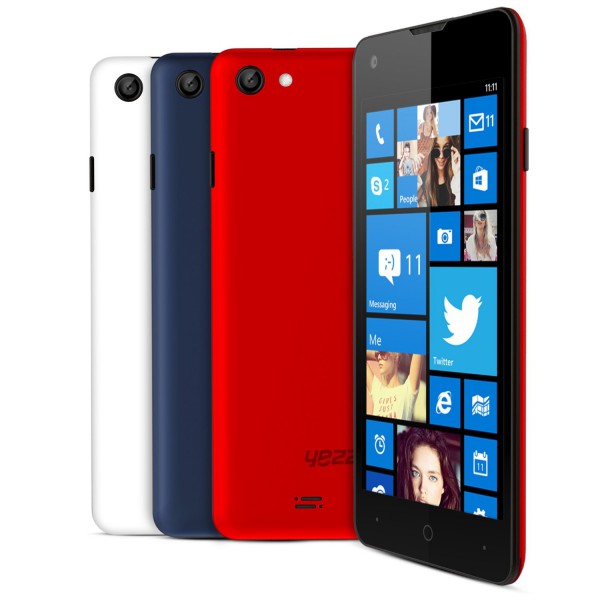
YEZZ Billy 4.7 with Microsoft's Windows Phone 8.1 available for pre-order
The low-cost smartphone segment is really starting to heat up. As the market starts to saturate, manufacturers look to poor and developing nations to keep the momentum going. Here in the USA, however, an arguably weak economy is creating a low-cost demand too; for both inexpensive devices and cheap no-contract plans. While Apple's iPhone is immediately out of the equation (unless you want to lock into a contract), Android and Windows Phone are the two smartphone-types that can deliver rock-bottom prices.
Today, a very inexpensive, but very capable, Windows Phone is available for pre-order; the YEZZ Billy 4.7. Haven't heard of this manufacturer? Me neither, but the reward may outweigh the risk.
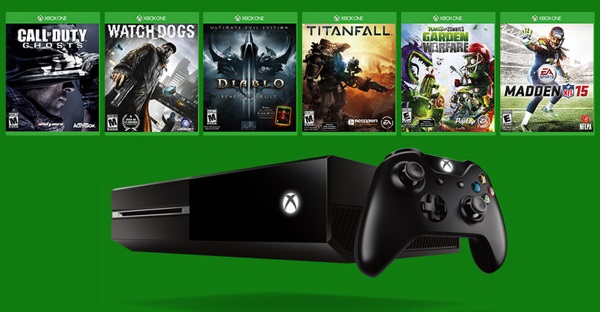
Stop! Don't buy that Xbox One just yet! Free game ahoy!
If you were planning on picking a new Xbox One console tomorrow, hold off on that purchase. Wait for a few more days and you can pick up a game worth up to $60 free of charge. This is the latest attempt by Microsoft to boost the popularity of its console and nose it ahead of Sony's PS4. It's likely that this offer will go down well with customers as, apart from the $60 upper price limit, every disc-based game is eligible.
The offer runs from Sunday 7 until Saturday 13 September and it applies to standalone consoles as well as bundles. You could pick up a bundle that already includes a game and still bag yourself another one free of charge. Here's the small print in full, although it's a pretty straightforward offer:
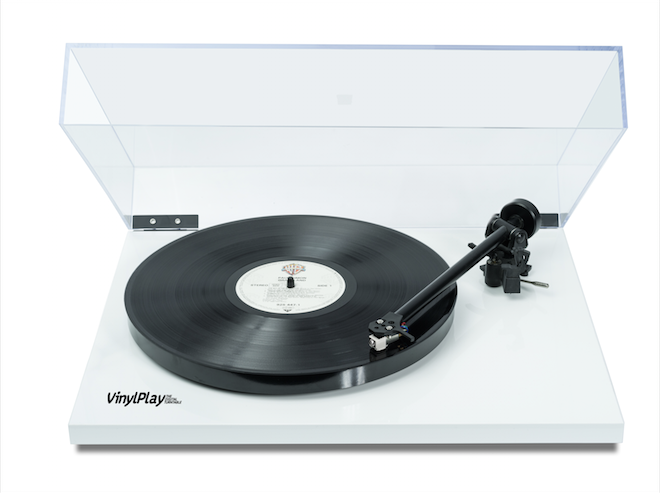
Wait, I can add a turntable to my Sonos?
Sonos, for those not familiar, is a multi-room audio system that many people love for its diverse functionality. You can play music everywhere in your house, providing you lay out money for each of the speaker systems. What more functionality could you possibly want?
Funny you should ask. How about a turntable? You remember -- those relics from a by-gone era. Except they still aren't dead, and many people still prefer the sound. Audiophiles claim it is the best, as opposed to CD and MP3.

Wise System Monitor tracks software, hardware and network traffic
Popular PC tools developer Wise Cleaner has released a public beta of its latest utility, Wise System Monitor.
The new addition is a desktop gadget which tracks and displays CPU usage, upload and download speeds, RAM consumption, CPU temperature and more.

DecryptCryptoLocker helps almost 3,000 victims
A few weeks back we reported on the launch of a free tool to help out CryptoLocker victims allowing them to retrieve locked files.
One of the companies behind the DecryptCryptoLocker tool, Fox-IT, has released some details of how well it's working. It has so far dealt with 2,900 requests for decryption keys and dozens more are being received on a daily basis.

Enterprises need an action plan for software upgrades
Many enterprises are now going to be forced to upgrade to a newer version of Internet Explorer! Microsoft recently announced that the company will be cutting-off the support lifeline for older versions of Internet Explorer (IE) including IE7 and IE8 (the most popular version) by January 2016. Choosing to continue using IE7 and IE8 will be a high risk strategy for enterprises as no patches for critical vulnerabilities will be provided by Microsoft.
And this is not all -- it is rumored that Windows 9 operating system (OS) will be unveiled by 30 September this year (for launch in April 2015) -- close on the heels of Window 8.1’s general availability in October 2013. This is when many enterprises have only just transitioned to Windows 7 from Windows XP; and some businesses are potentially underway in their Windows 8/8.1 projects.

VirtualXP Free lets you convert your old Windows XP PC into a virtual machine
Farstone Technology has released VirtualXP Free 1.0, a free-for-personal-use tool that simplifies the task of converting a Windows XP or Windows Server 2003 physical PC into a virtual machine.
The idea is that users hesitating about switching to a newer version of Windows can take their old system with them, ensuring all data, settings and programs continue to work going forward.
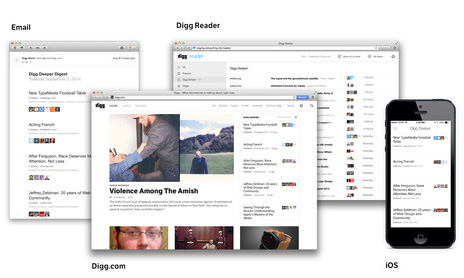
Digg Deeper comes to Reader and iOS, adds email option
Digg may not be the "in" thing that it was when Kevin Rose started it, but the site is still around and trying to stay relevant. Last year, in the wake of Google's shutdown of its Reader app, the social sharing site launched an alternative. More recently it launched Digg Deeper, a service that automatically IDs trending stories and videos based on those you follow via Twitter.
Now Digg Deeper is coming to more platforms, one of which is the aforementioned Reader application. "You can now use Digg Deeper to scan the most-shared stories, videos and links from your Twitter connections", the service announces.

Forget PCs and tablets -- phablets are the next big thing
Phablets are emerging as the next big thing in the smart device market. According to research firm IDC, big-screen smartphones will out-ship portable PCs (laptops) before the end of 2014, and tablets sometime in 2015. What's more, also this year, phablet shipments are expected to far outnumber desktop PCs. Want to bet on a winning large form factor? Pick phablets.
In 2014, IDC expects shipments of phablets, tablets, portable PCs and desktop PCs to reach 174.9 million, 233.1 million, 170 million and 133.5 million, respectively. Fast forward to the end of 2015, and shipments of phablets and tablets reach 318 million and 233 million units, respectively. And with Apple expected to unveil an iPhone phablet, big smartphones are only going to make things worse for PC and tablet shipments.

Is your partner spying on you?
Google knows a lot about you, and the government may be snooping on your activities, but it's your significant other who may well be the one spying on you the most, according to a new survey by security firm Avast.
The company surveyed 13,132 adults in the United States and found that one in four women and one in five men regularly checked their partner's smartphone. Most of the women were doing so purely to be nosy, but a quarter of married women admitted to looking for evidence of infidelity.



